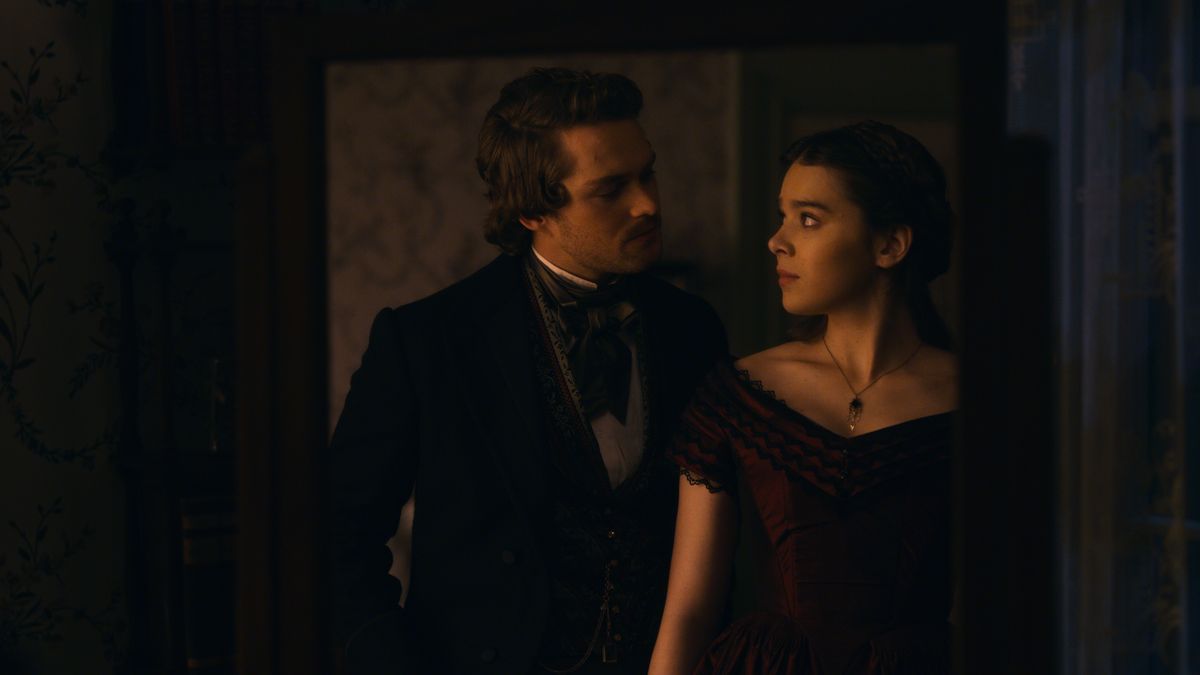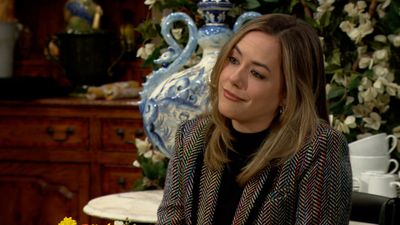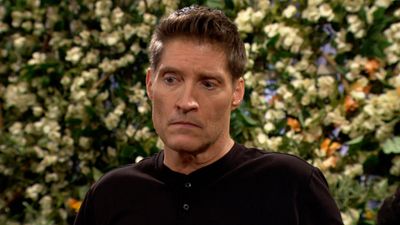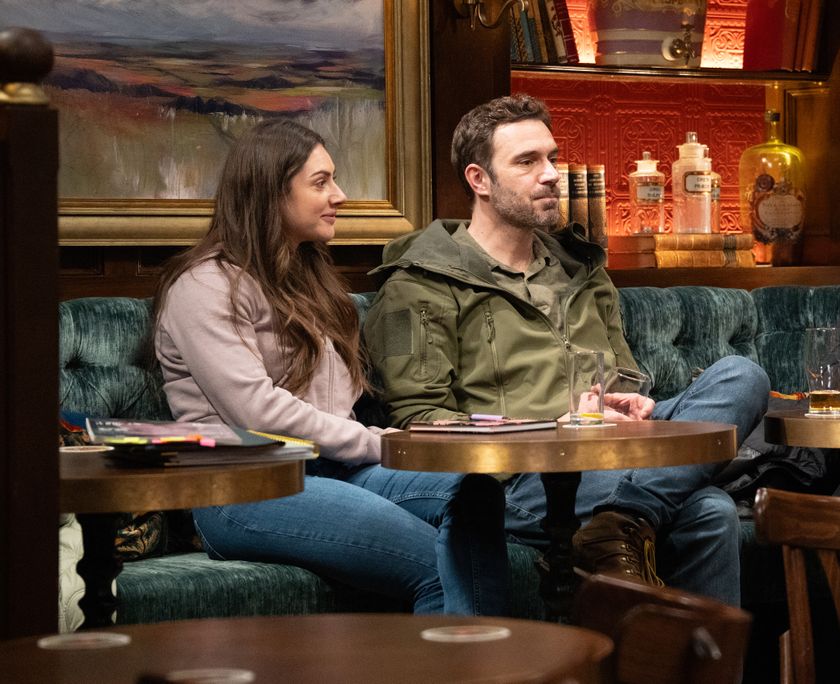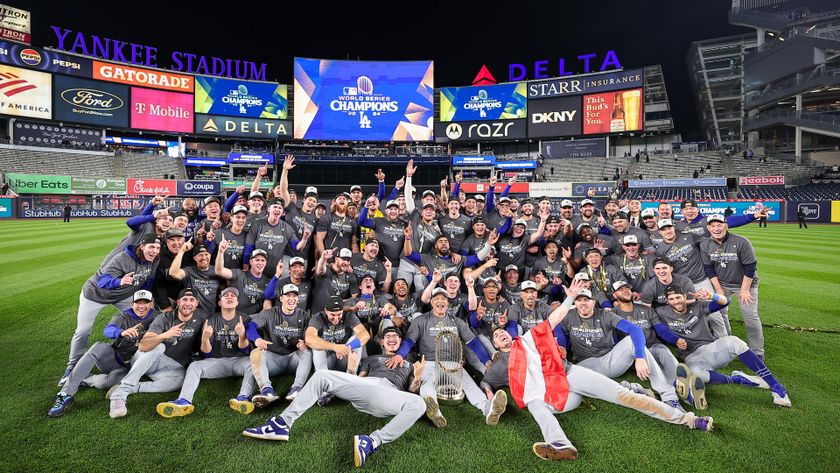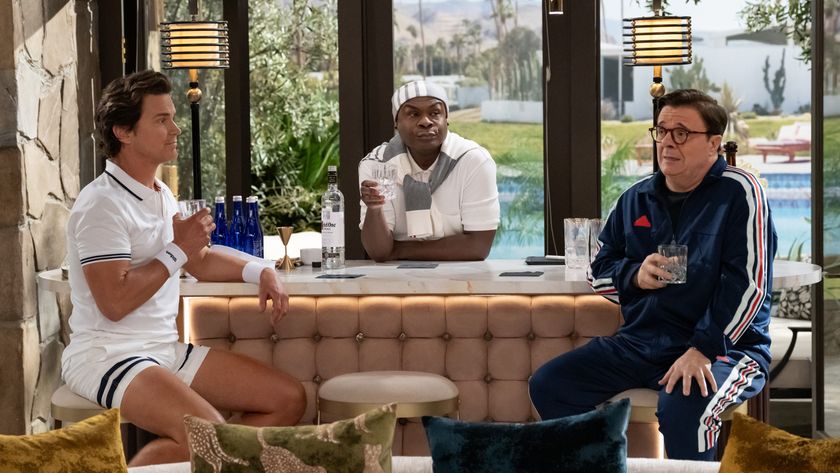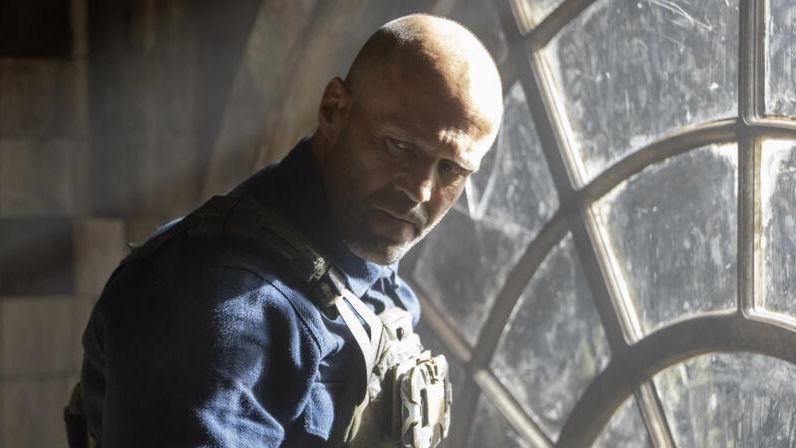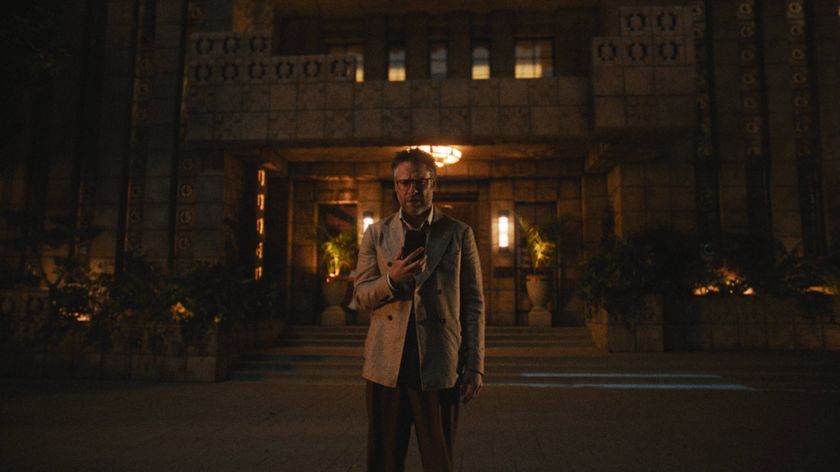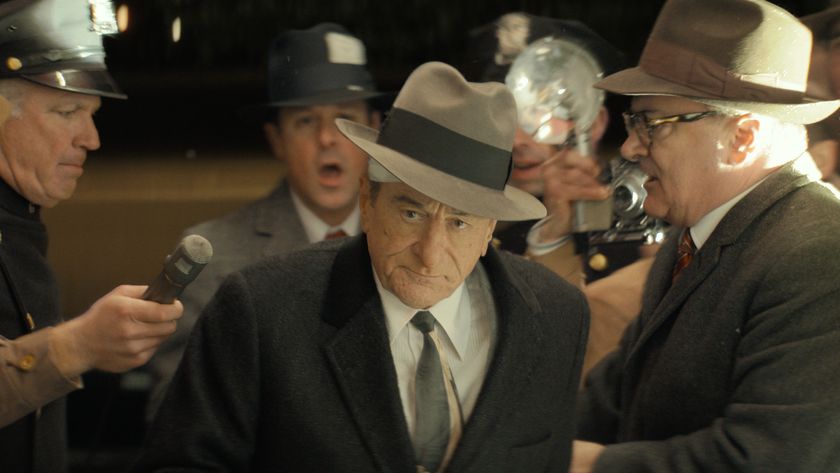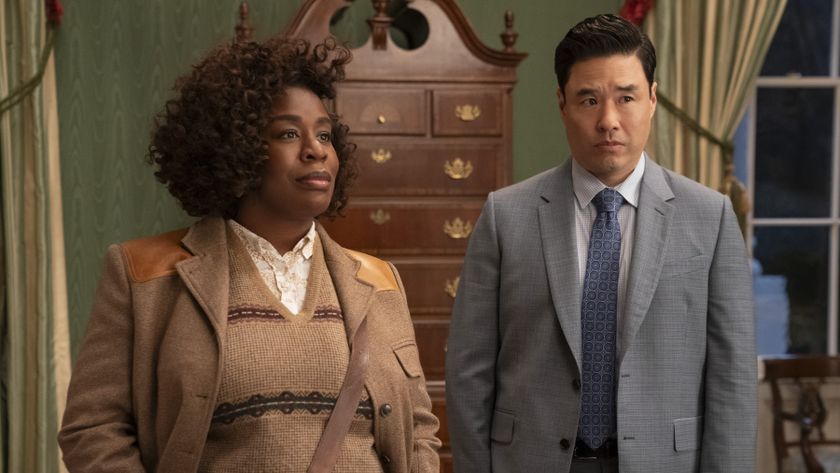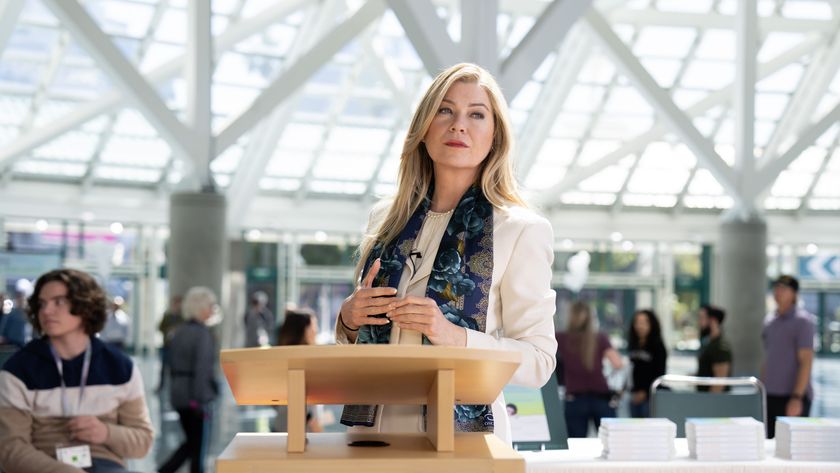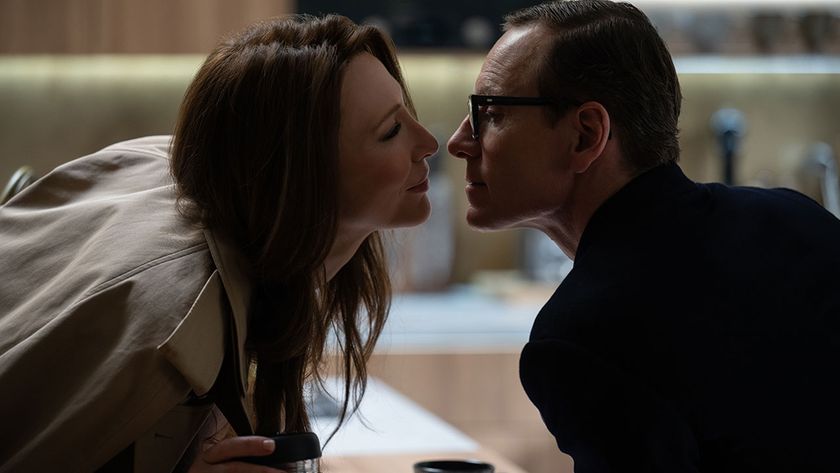What to Watch Verdict
Fame as the central theme continues to deliver this season in a way that is pushing the narrative forward at an exciting pace.
Pros
- +
🌸Lavinia's 'Scarlet Letter' role-play is a refreshing (and hilarious) take on this classic text.
- +
🌸The arrival of the printed press promises big things.
- +
🌸Sue's impassioned defense of Emily's professional standing is very satisfying.
Cons
- -
🌸If anything, we need more of this 'Scarlet Letter' depiction by Lavinia and Ship.
- -
🌸Sue and Austin are in danger of having the same disagreement each week.
This post contains spoilers for Dickinson.
Read our last review here.
Having embraced the idea of becoming a published writer and a poem already accepted by the illustrious Springfield Republican, Emily Dickinson (Hailee Steinfeld) is ready to face her audience. But fame is prickly and her initial reluctance to embrace it is put to the test when she is met with a barrage of rumors and innuendo about Samuel Bowles’ (Finn Jones) intentions as her editor. Ambition in women is still met with suspicion in the 21st century, making Emily’s mid-1800s debut a rare and gossip-worthy subject at Sue’s (Ella Hunt) exclusive salon in “Forbidden Fruit a flavor has.” Emily is not the only Dickinson character bristling against the status quo using the printed word as Henry’s (Chinaza Uche) plan to “start a revolution” gets a helping hand, and Lavinia (Anna Baryshnikov) gives her new fiancé an important literature lesson. The power of print and how information is wielded thematically binds this outing, which once again proves how adept Alena Smith’s series is at drawing on real historical moments that are still relevant nearly 200 hundred years later.
Emily goes from being encouraged to “Get it, girl!” to being told rather dismissively by successful artist Sanford Robinson Gifford (Jibz Cameron) that “You seem just his type.” Rumors abound that Samuel’s “flavor of the month” is little more than a woman he sleeps with using creative talent as an affair smokescreen. This is a tale as old as time suggesting a woman cannot be successful without some sort of ulterior motive, which quickly sours this event for the poet. Conflict arises because Samuel is incredibly tactile and flirtatious and his proclivity toward publishing female writers is met with suspicion. Yes, Emily is attracted to her editor — which culminates in a hot-and-heavy fantasy sequence at the end of the episode — but her talent is only being questioned because of gender. In this scenario, Samuel's alleged actions are treated as a benefit to his position and she is the one being brandished with a scarlet letter. Additionally, the lack of a confirmed publishing date is troubling and once again it is hard to read Samuel’s motives even if it seems like he has Emily’s best creative interests at heart.
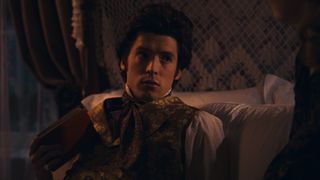
Luckily, Emily’s fiercest advocate is on hand to give the pep talk many of us need when our work is scrutinized for superficial (and often, inaccurate) reasons:
“It’s just not fair what happens to women. The minute we get a little bit of fame, or show the slightest amount of ambition, we get slapped with the nastiest comments. We get these targets on our backs. I say to hell with all that. You go out there and own this.”
Sue’s fiery missive comes after Emily has asked about the Samuel whisperings and the fact his wife Mary never accompanies him to these events. Sue’s impassioned response includes a description of Mary, who she remarks was her first friend before she met Emily. She goes on to say that her closest friends share an introspection and a desire to go unseen. Sue also has something to prove, so while her points are sincere, the desire to make this salon the talk of the town (and New England) also rests on the talent (both new and old) she attracts. A veritable East Coast who’s who, other guests include the aforementioned Sanford, poet Harriet Prescott Spofford (aka the Flaming Fire Lily of New England), and Boston Traveller editor Ferdinand Andrews. Yes, some of these figures are not as well known in 2021 as other famous people who have appeared on Dickinson — see Louisa May Alcott, Henry David Thoreau, and the forthcoming Edgar Allan Poe — but these deep cuts once again speak to the flourishing creativity of the period and that not everyone casts a spell as long-lasting as Emily (even if her success during her lifetime was extremely limited).
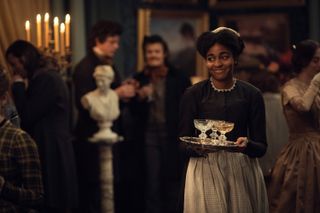
The stunning gold dress from New York City — which Sue wore in the season premiere — is switched for an aesthetic that suggests the salon host was too busy reading to care about glamor, highlighting the importance of appearance for the newest Mrs. Dickinson. Wearing glasses she doesn’t need, the role of “tastemaker” is one that defines her rather than wife or mother. The newly adopted Newman girls still serve as an unpleasant reminder of her past and her relationship with Austin (Adrian Blake Enscoe) is cordial at best. The bickering is in danger of getting repetitive but he does break it to her that these children are effectively paying for the Evergreens. This new information gives Sue the opportunity to point out his altruistic act is an empty gesture. The pair are interrupted by a well-timed delivery and the events out in the barn are more productive to the cause than Sue’s guest of honor — she is deeply disappointed when Sam mentions he has already seen Henry “Box” Brown’s (Ade Otukoya) performance at three other salons.
“He’s actively bad for the community,” Hattie (Ayo Edebiri) exclaims when she bursts into the barn after this speaker has recounted how he escaped slavery 10 years before — they now check every crate carefully and her cousin was caught attempting this method. Performing to a mostly white liberal crowd, there is no attempting to help the abolitionist movement beyond polite applause. In the far less glamorous location, a printing press now stands, which could have a real impact and when Hattie notes how speechless she is — “I’m a freelance writer, and I just ran out of words” — Austin has already demurred that he is “just trying to make a difference to somebody.” As with the Newman girls, his motives aren’t entirely selfless but his economic contribution (along with the hay-filled safe haven) is more essential to Henry's desire to start a revolution than a lecture only the privileged can attend.
The power of the written word is covered in a different guise next door at the more sedate Dickinson residence, in which the rest of Emily’s family opts to stay home — aka “novel and chill.” Lavinia is already frustrated by her fiancé Ship (Pico Alexander), who is still under the misconception she will be a subservient housewife despite her best (and horny) efforts. “Actually it’s ribald,” she tells him about The Scarlet Letter after he has dismissed the plot as “pretty dull.” Lavinia’s idea of giving him an English lesson involves role-playing Nathaniel Hawthorne’s much-cited text with British-leaning accents and sexy interpretations of Puritanical attire. Rather than feeling like it is treading old ground of this much-studied and cited novel, this is a refreshing take of a famous text. Baryshnikov is hilarious in her depiction of how committed Lavina is to this two-person book club and this light-hearted subplot ties back to the overall episode theme without feeling forced. The forbidden fruit is the written word and in Dickinson, it tastes as good as ever.
Emma Fraser spends most of her time writing about TV, fashion, and costume design; Dana Scully is the reason she loves a pantsuit. Words can also be found at Vulture, Elle, Primetimer, Collider, Little White Lies, Observer, and Girls on Tops. Emma has a Master’s in Film and Television, started a (defunct) blog that mainly focused on Mad Men in 2010, and has been getting paid to write about TV since 2015. It goes back way further as she got her big start making observations in her diary about My So-Called Life’s Angela Chase (and her style) at 14.
